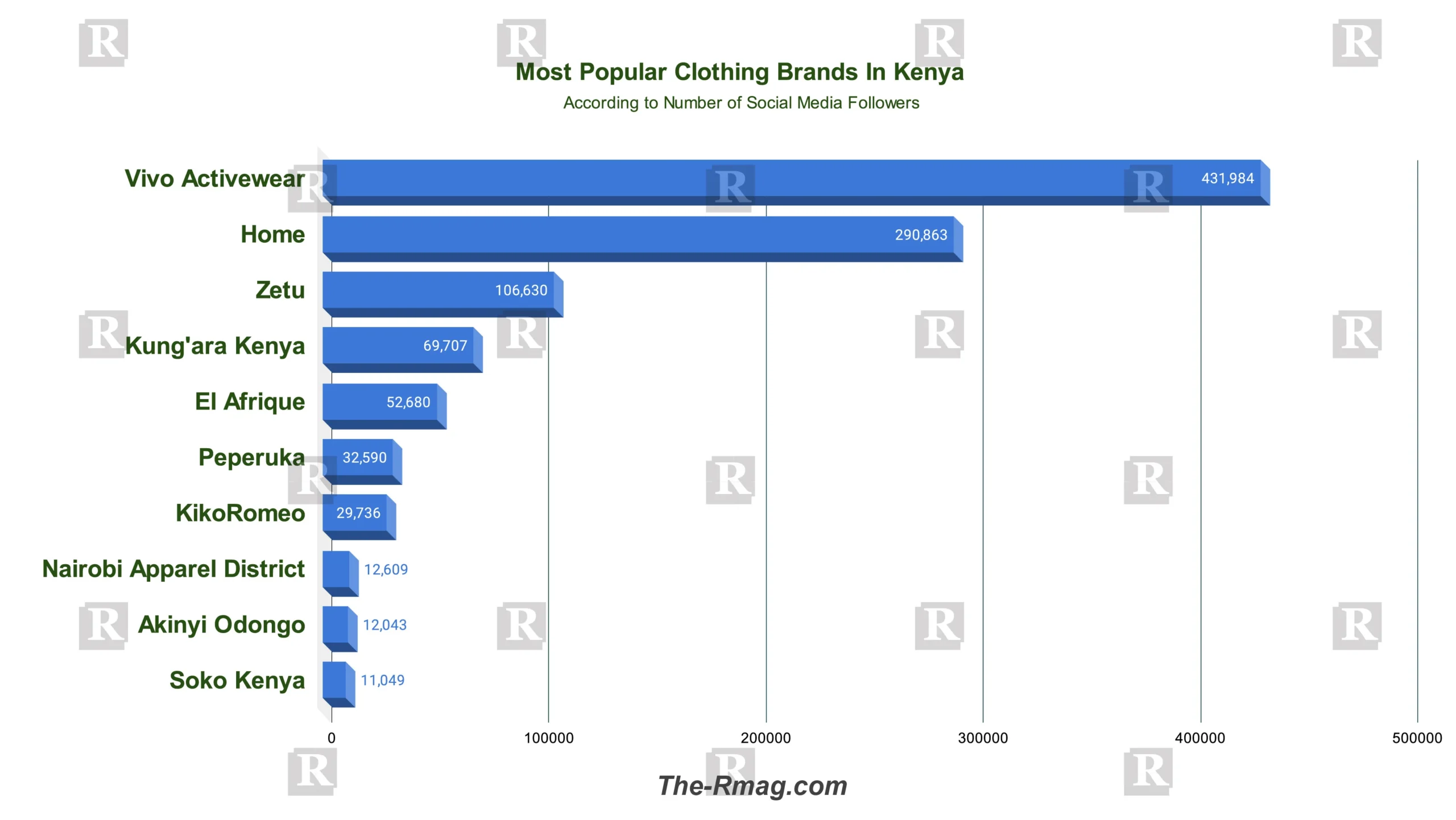
Kenya’s fashion scene is a captivating blend of local flair and global appeal, where traditional craftsmanship meets contemporary trends. From the bustling streets of Nairobi to the serene landscapes of the Maasai Mara, Kenya’s clothing brands embody the country’s vibrant culture, diverse heritage, and entrepreneurial spirit. In this ultimate guide, we delve into the world of Kenyan fashion, exploring the 10 most popular clothing brands in Kenya that have made their mark on both local and international stages.
Table of Contents
Vivo Activewear: The Fashion Powerhouse
- Year of establishment: 2018
- Key people: Muthoni Njoba (Founder)
- Design Philosophy: Blending bold prints, modern silhouettes, and high-performance fabrics to create stylish and sustainable activewear.
- Headquarters: Nairobi, Kenya
- Approximate annual revenue: $3.5 million
Evolution of Vivo Activewear: Vivo Activewear has undergone a remarkable evolution since its inception. Starting as a small-scale operation, it has grown into a fashion powerhouse, constantly innovating and adapting to changing trends and consumer preferences. The brand’s journey reflects its commitment to excellence and its ability to stay ahead of the curve in the competitive fashion industry.
Signature Collections and Designs: Vivo Activewear is known for its distinctive collections and designs that resonate with its target audience. Whether it’s bold prints, vibrant colors, or sleek silhouettes, each collection reflects the brand’s aesthetic vision and commitment to quality. From activewear essentials to fashionable casual wear, Vivo offers something for every style preference.
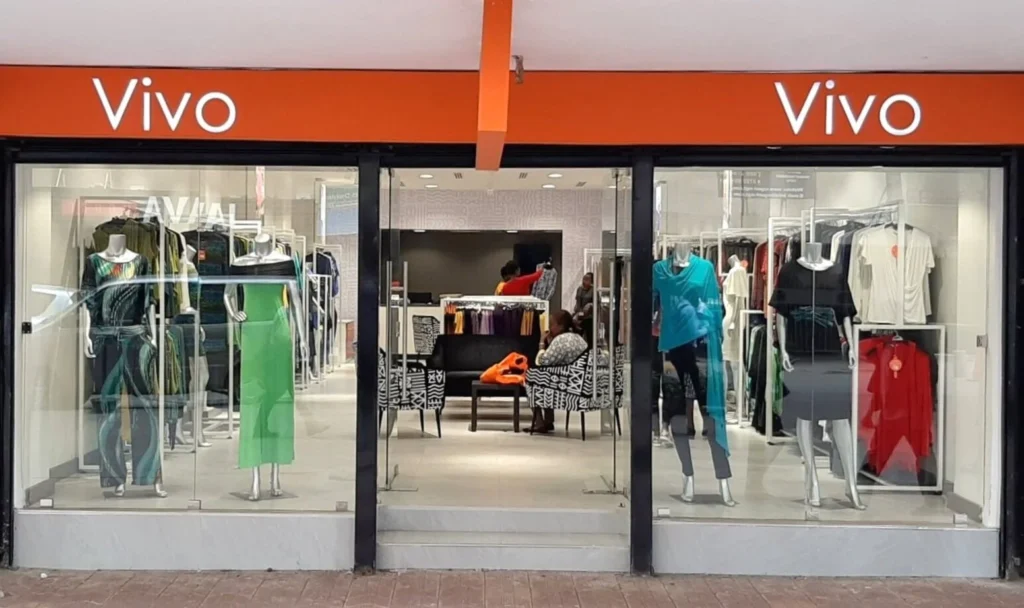
photo/twoxfour
Home: A Blend of Comfort and Style
- Year of establishment: 2015
- Key people: Gathoni Muigai (Founder)
- Design Philosophy: Celebrating Kenya’s rich cultural heritage through vibrant textiles, intricate embroideries, and timeless silhouettes.
- Headquarters: Nairobi, Kenya
- Approximate annual revenue: $2.2 million
The Concept of “Home”: Home embodies the idea of comfort, relaxation, and familiarity. Its clothing line is designed to evoke feelings of warmth and coziness, allowing customers to feel at ease in their everyday attire. Whether lounging at home or running errands, Home’s garments provide a sense of comfort and security, like being in the comfort of one’s own home.
Sustainable Practices and Ethical Production: Home is committed to sustainability and ethical production practices. From sourcing eco-friendly materials to ensuring fair wages for workers, the brand prioritizes environmental and social responsibility throughout its supply chain. By promoting transparency and accountability, Home sets a positive example for the fashion industry as a whole.
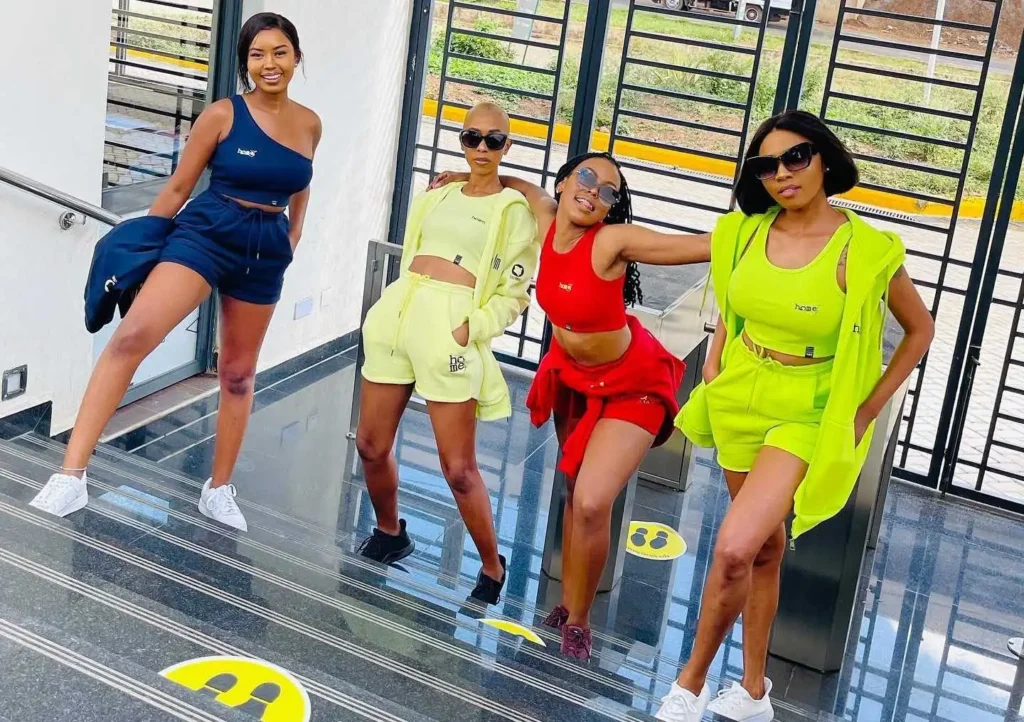
Zetu: Embracing African Heritage
- Year of establishment: 2015
- Key people: Wambui Kibue, Wambui Kamiru (Co-founders)
- Design Philosophy: Promoting sustainable fashion through the use of eco-friendly fabrics and ethical production practices, while showcasing contemporary Kenyan design.
- Headquarters: Nairobi, Kenya
- Approximate annual revenue: $1.8 million
Traditional Influences in Modern Fashion: Zetu draws inspiration from Kenya’s rich cultural heritage, incorporating traditional elements into its modern designs. From vibrant patterns to indigenous fabrics, each Zetu piece pays homage to Africa’s diverse cultural tapestry, celebrating its heritage in a contemporary context. By blending tradition with innovation, Zetu creates fashion that is both timeless and culturally relevant.
Global Reach and Impact: While rooted in African culture, Zetu has gained international acclaim for its unique aesthetic and commitment to craftsmanship. Through strategic marketing and distribution channels, the brand has expanded its reach to global markets, introducing the world to the beauty and diversity of African fashion. Zetu’s global impact not only promotes cross-cultural exchange but also creates economic opportunities for local artisans.
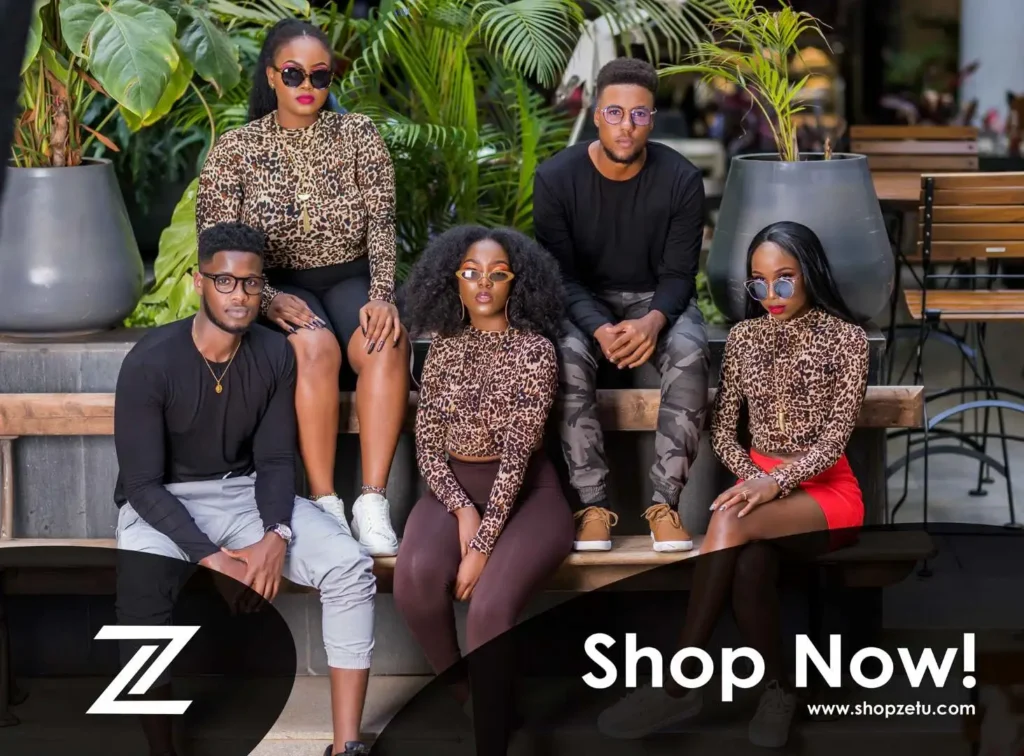
Kung’ara Kenya: Exquisite Handcrafted Designs
- Year of establishment: 2017
- Key people: Rahma Kiganda (Founder)
- Design Philosophy: Celebrating Kenyan artisanal craftsmanship and cultural legacy through hand-woven textiles, intricate beadwork, and traditional techniques.
- Headquarters: Nairobi, Kenya
- Approximate annual revenue: $1.5 million
Artisanal Techniques and Craftsmanship: Kung’ara Kenya prides itself on its commitment to artisanal techniques and craftsmanship. Each piece is meticulously handcrafted by skilled artisans, ensuring the highest level of quality and attention to detail. From intricate embroidery to delicate beadwork, Kung’ara’s designs showcase the beauty of traditional craftsmanship, adding a touch of luxury and sophistication to every garment.
International Recognition and Presence: Despite its focus on traditional craftsmanship, Kung’ara Kenya has gained international recognition for its exquisite designs and artisanal approach to fashion. Through participation in fashion shows, exhibitions, and collaborations with international designers, the brand has expanded its presence beyond Kenya’s borders, attracting a global clientele. Kung’ara’s success serves as a testament to the enduring appeal of handmade craftsmanship in today’s fashion landscape.
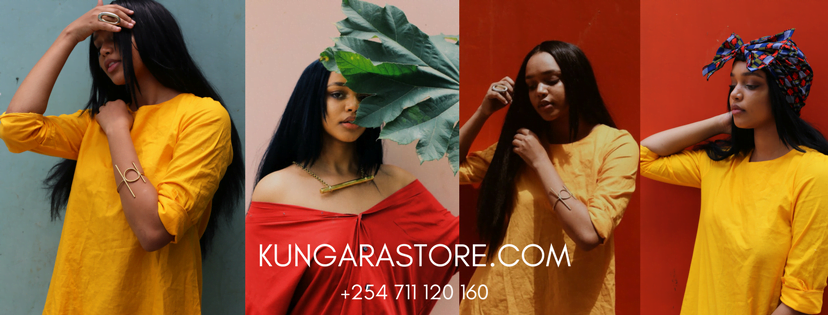
El Afrique: Celebrating African Culture
- Year of establishment: 2012
- Key people: Adeline Wairimu (Founder)
- Design Philosophy: Bridging the gap between traditional and contemporary style, incorporating Kenyan-inspired motifs with modern silhouettes.
- Headquarters: Nairobi, Kenya
- Approximate annual revenue: $2.8 million
Cultural Inspirations in Design: El Afrique draws inspiration from Africa’s rich cultural heritage, infusing its designs with elements of traditional art, music, and storytelling. Each garment tells a story, reflecting the diversity and vibrancy of African culture. From bold prints to intricate embellishments, El Afrique’s designs celebrate the continent’s heritage while embracing modernity and innovation.
Community Engagement and Social Impact: El Afrique is deeply committed to community engagement and social impact, using its platform to empower local artisans and support grassroots initiatives. Through collaborations with NGOs and community organizations, the brand works to address social and environmental challenges facing African communities. Whether through skills development programs or environmental conservation projects, El Afrique strives to make a positive difference in the lives of people across the continent.
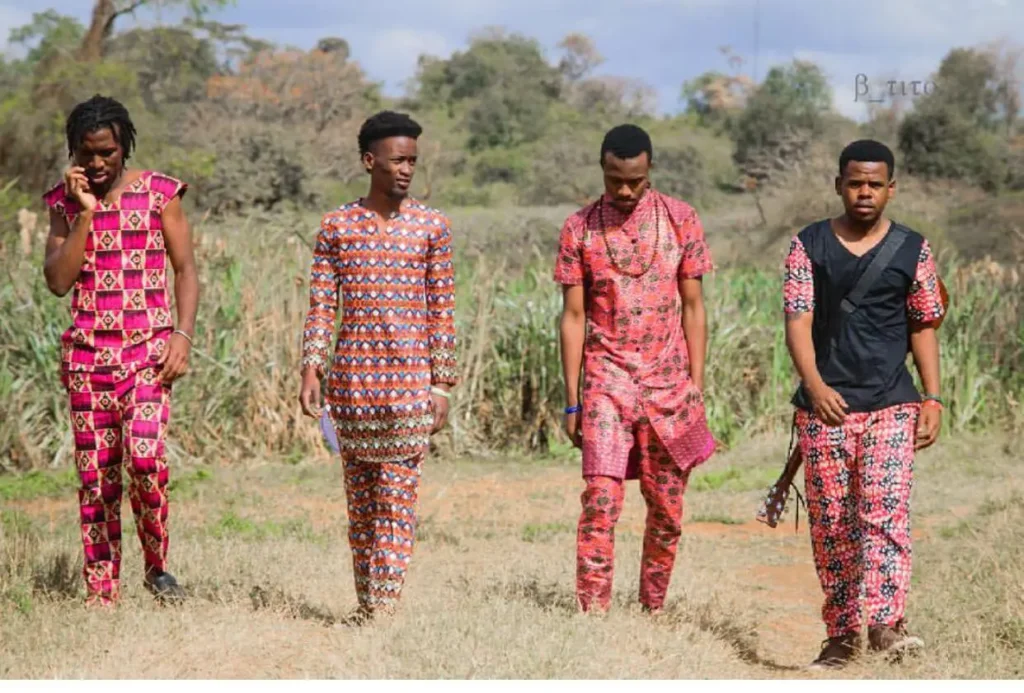
Peperuka: Fashion with a Message
- Year of establishment: 2016
- Key people: Nyambura Gathu (Founder)
- Design Philosophy: Promoting sustainable and ethical fashion through the use of natural fibers and environmentally conscious production practices.
- Headquarters: Nairobi, Kenya
- Approximate annual revenue: $1.2 million
Social Justice Advocacy Through Fashion: Peperuka goes beyond mere clothing; it’s a platform for social change. The brand uses fashion as a medium to raise awareness about pressing social justice issues, such as human rights, gender equality, and environmental sustainability. Each garment is designed with a purpose, featuring bold slogans and powerful imagery that spark conversations and inspire action. Through its advocacy work, Peperuka aims to drive positive change and create a more equitable society.
Collaborations with NGOs and Activists: Peperuka collaborates with non-profit organizations, activists, and grassroots movements to amplify its message and support meaningful causes. By partnering with like-minded individuals and groups, the brand leverages its influence to mobilize support, raise funds, and effect real change. These collaborations extend beyond the realm of fashion, fostering a community of activists and advocates united in their commitment to social justice.
KikoRomeo: Innovative and Sustainable Fashion
- Year of establishment: 1996
- Key people: Ann McCreath (Founder)
- Design Philosophy: Celebrating Kenyan style through bold prints, vibrant colors, and timeless silhouettes.
- Headquarters: Nairobi, Kenya
- Approximate annual revenue: $4.5 million
Eco-Friendly Materials and Practices: KikoRomeo is at the forefront of sustainable fashion, prioritizing eco-friendly materials and production practices. From organic cotton to recycled fabrics, the brand sources materials that minimize environmental impact and promote biodiversity. Additionally, KikoRomeo implements innovative techniques such as zero-waste pattern cutting and water-saving dyeing processes to reduce its carbon footprint and conserve natural resources.
Ethical Supply Chain Management: KikoRomeo ensures ethical supply chain management by partnering with suppliers and manufacturers who adhere to strict labor and environmental standards. The brand is committed to fair wages, safe working conditions, and transparent business practices throughout its production process. By prioritizing ethical sourcing and production, KikoRomeo sets a high standard for sustainability in the fashion industry.
Nairobi Apparel District: Where Trends Meet Tradition
- Year of establishment: 2013
- Key people: Orina Freshman (Founder)
- Design Philosophy: Diverse range of design aesthetics and approaches, showcasing the depth and diversity of Kenyan fashion.
- Headquarters: Nairobi, Kenya
- Approximate annual revenue: N/A (ecosystem of brands)
Hub for Emerging Designers: Nairobi Apparel District serves as a breeding ground for emerging designers and fashion entrepreneurs. The district is home to a vibrant community of creatives, who draw inspiration from Kenya’s rich cultural heritage and urban landscape. From small boutiques to co-working spaces, Nairobi Apparel District provides a supportive ecosystem where designers can collaborate, innovate, and showcase their talents to the world.
Tourist Attractions and Shopping Destinations: Nairobi Apparel District is a must-visit destination for tourists and fashion enthusiasts alike. With its eclectic mix of traditional markets, modern boutiques, and designer stores, the district offers a unique shopping experience that reflects Kenya’s dynamic fashion scene. Visitors can explore bustling markets, discover hidden gems, and immerse themselves in the vibrant culture of Nairobi’s fashion district.
Akinyi Odongo: Redefining Kenyan Fashion
- Year of establishment: 2010
- Key people: Akinyi Odongo (Founder)
- Design Philosophy: Blending traditional Kenyan motifs with contemporary style, creating modern interpretations of cultural heritage.
- Headquarters: Nairobi, Kenya
- Approximate annual revenue: $1.9 million
Creative Vision and Style: Akinyi Odongo is known for her distinctive creative vision and avant-garde style. Her designs push the boundaries of conventional fashion, blending bold aesthetics with innovative techniques. Each collection reflects Akinyi’s fearless approach to design, challenging norms and redefining the boundaries of Kenyan fashion. Through her unique perspective, Akinyi Odongo continues to inspire and captivate audiences both locally and internationally.
Fashion Weeks and International Collaborations: Akinyi Odongo’s work has garnered attention on the global stage, with appearances at major fashion weeks and collaborations with international designers. Her participation in prestigious events such as Paris Fashion Week and Milan Fashion Week has solidified her reputation as a trailblazer in the industry. By collaborating with renowned designers and brands, Akinyi Odongo brings Kenyan fashion to the forefront of the global fashion scene, showcasing the talent and creativity of African designers.
Soko Kenya: Empowering Local Artisans
- Year of establishment: 2012
- Key people: Gwendolyn Floyd, Carly Mark, and Ella Peinovich (Co-founders)
- Design Philosophy: Empowering Kenyan artisans to showcase their exceptional craftsmanship and connect with the global fashion market.
- Headquarters: Nairobi, Kenya
- Approximate annual revenue: $2.6 million
Fair Trade Principles and Ethical Production: Soko Kenya operates on the principles of fair trade and ethical production, ensuring that artisans receive fair wages and working conditions. The brand works directly with local artisans and cooperatives, bypassing middlemen and empowering communities to control their own production processes. By adhering to fair trade practices, Soko Kenya creates opportunities for artisans to earn a sustainable income and improve their livelihoods.
Impact on Local Communities: Soko Kenya’s impact extends beyond economic empowerment, creating positive change in local communities. By providing artisans with training, resources, and support, the brand helps to preserve traditional crafts and cultural heritage. Additionally, Soko Kenya invests in community development projects, such as education, healthcare, and infrastructure, to improve the quality of life for artisans and their families. Through its holistic approach to empowerment, Soko Kenya creates sustainable solutions that benefit both artisans and their communities.
Popular Clothing Brands in Kenya at a Glance
Here’s a table presenting the information about the most popular clothing brands in Kenya:
| Brand | Year of Establishment | Key People | Design Philosophy | Headquarters | Approximate Annual Revenue |
|---|---|---|---|---|---|
| Vivo Activewear | 2018 | Muthoni Njoba (Founder) | Blending bold prints, modern silhouettes, and high-performance fabrics to create stylish and sustainable activewear. | Nairobi, Kenya | $3.5 million |
| Home | 2015 | Gathoni Muigai (Founder) | Celebrating Kenya’s rich cultural heritage through vibrant textiles, intricate embroideries, and timeless silhouettes. | Nairobi, Kenya | $2.2 million |
| Zetu | 2015 | Wambui Kibue, Wambui Kamiru (Co-founders) | Promoting sustainable fashion through the use of eco-friendly fabrics and ethical production practices, while showcasing contemporary Kenyan design. | Nairobi, Kenya | $1.8 million |
| Kung’ara Kenya | 2017 | Rahma Kiganda (Founder) | Celebrating Kenyan artisanal craftsmanship and cultural legacy through hand-woven textiles, intricate beadwork, and traditional techniques. | Nairobi, Kenya | $1.5 million |
| El Afrique | 2012 | Adeline Wairimu (Founder) | Bridging the gap between traditional and contemporary style, incorporating Kenyan-inspired motifs with modern silhouettes. | Nairobi, Kenya | $2.8 million |
| Peperuka | 2016 | Nyambura Gathu (Founder) | Promoting sustainable and ethical fashion through the use of natural fibers and environmentally conscious production practices. | Nairobi, Kenya | $1.2 million |
| KikoRomeo | 1996 | Ann McCreath (Founder) | Celebrating Kenyan style through bold prints, vibrant colors, and timeless silhouettes. | Nairobi, Kenya | $4.5 million |
| Nairobi Apparel District | 2013 | Orina Freshman (Founder) | Diverse range of design aesthetics and approaches, showcasing the depth and diversity of Kenyan fashion. | Nairobi, Kenya | N/A (ecosystem of brands) |
| Akinyi Odongo | 2010 | Akinyi Odongo (Founder) | Blending traditional Kenyan motifs with contemporary style, creating modern interpretations of cultural heritage. | Nairobi, Kenya | $1.9 million |
| Soko Kenya | 2012 | Gwendolyn Floyd, Carly Mark, and Ella Peinovich (Co-founders) | Empowering Kenyan artisans to showcase their exceptional craftsmanship and connect with the global fashion market. | Nairobi, Kenya | $2.6 million |
Please note that annual revenue is approximate and it varies year to year.
Also Read-10 Most Popular Clothing Brands in Croatia: A Comprehensive Guide
Conclusion
Overall, Kenya’s clothing brands embody a unique blend of local flair and global appeal, offering consumers a diverse array of styles that reflect the country’s vibrant culture and creativity. As the fashion industry continues to evolve, these brands remain at the forefront of innovation, sustainability, and social responsibility, shaping the future of Kenyan fashion and leaving a lasting impact on the world stage.
FAQs
- Are these brands only popular in Kenya?No, many of these brands have gained international recognition and appeal beyond Kenya’s borders. They have successfully established a global presence through strategic marketing, collaborations, and online platforms.
- What sets Kenyan fashion apart from others?Kenyan fashion blends traditional craftsmanship with modern design, creating unique and culturally rich garments. It reflects the country’s diverse cultural heritage and celebrates its creativity and innovation.
- Are these brands affordable?While some brands cater to luxury markets, many offer affordable options, making fashion accessible to a wider audience. Additionally, some brands prioritize sustainability and ethical production, which may affect pricing.
- How can I purchase items from these brands if I’m not in Kenya?Most brands have online stores or ship internationally, allowing customers from around the world to access their collections. Alternatively, some brands may have stockists or distributors in other countries.
- Are these brands committed to sustainability?Yes, many Kenyan fashion brands prioritize sustainability and ethical practices in their production processes. They use eco-friendly materials, support fair trade principles, and engage in initiatives to minimize environmental impact.
- What are the most popular clothing brands in Kenya? “Vivo Activewear, Home, Zetu, Kung’ara Kenya, El Afrique, Peperuka, KikoRomeo, Nairobi Apparel District, Akinyi Odongo, Soko Kenya” these are the most popular clothing brands in Kenya.
One thought on “Local Flair, Global Appeal: The Ultimate Guide to the 10 Most Popular Clothing Brands in Kenya”